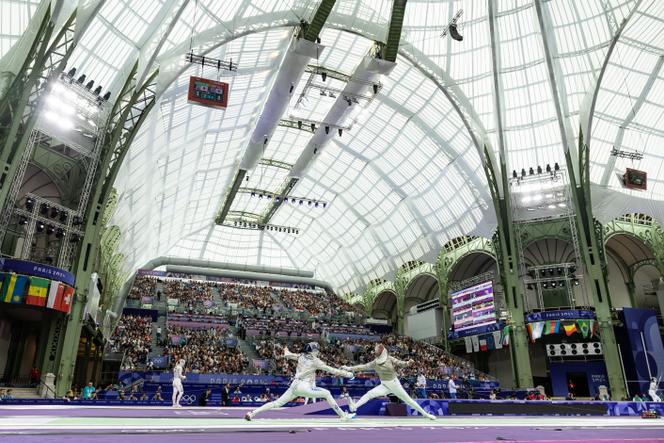


The images will remain forever imprinted in our memories. The electrifying breakdancing at the Place de la Concorde; the Grand Palais’ glass ceiling reflecting the mood of cheering fencing fans; the Versailles grounds enlivened by the equestrian events; the Esplanade des Invalides transformed into a shooting range. Images that were suitably acclaimed by the competitors who have never experienced such settings for their sporting events. The Parisian landmarks were the other big winners at the Olympic Games, which continue until Sunday, September 8 with the Paralympics.
The fashion world has long been exploiting historic sites to enhance its shows. In the space of just a few weeks, heritage has proved to be a forceful ally in the achievement narrative. "The Grand Palais certainly isn’t the fencing hall in Plovdiv [Bulgaria]," said the French fencers, when interviewed by Libération on Saturday July 27. The épéeist Boladé Apithy was overcome: "It ‘s mind-blowing! I'm going to ask the federation to organize a competition here every year."
"Why not?" said the Grand Palais president Didier Fusillier. But perhaps every two years, as the hall’s dance card is already overflowing. After all, with the 300,000 spectators who took their place there over a fortnight, it was subjected to a full-scale test, including acoustics, which proved conclusive. Setting up movable stands is feasible. Rearranging the surrounding area is another story altogether. The main hurdle for sports organizations is the cost of the Grand Palais. With the installation, dismantling and 10 days of competition, the bill could amount to €1 million for a month's rental.
Scenarios for hosting other sporting events at the Château de Versailles are also being studied. The subject was even raised at the equestrian federations’ meeting on September 3. "If we could find solutions that would respect the site and are economically viable, it would be wonderful, because it's totally in the château ‘s DNA, which used to be a hunting lodge," said its president Christophe Leribault.
Museums and monuments in Paris now want to capitalize on the unexpected exposure the Olympic Games conferred on them. Despite a 25% to 50% drop in visitor numbers this summer, they are all confident of attracting a new public and securing more privatizations, as well as wooing rich patrons, who lately, have been in short supply. "I can't say I've met a prominent Australian billionaire who has suddenly fallen in love with Versailles," said Leribault, who is focusing on the long term.
You have 68.71% of this article left to read. The rest is for subscribers only.
